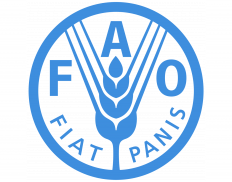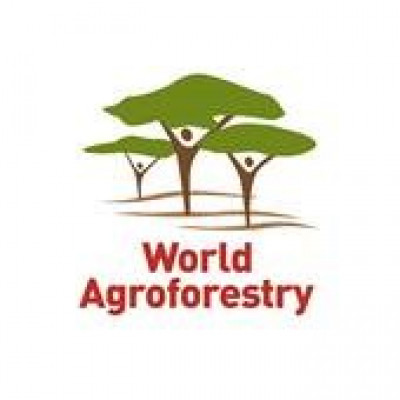Details
Description
Background
UN Women, grounded in the vision of equality enshrined in the Charter of the United Nations, works for the elimination of discrimination against women and girls; the empowerment of women; the achievement of equality between women and men as partners and beneficiaries of development; human rights; as well as humanitarian action and peace and security. Placing women's rights at the centre of all its efforts, UN Women leads and coordinates United Nations (UN) system efforts to ensure that commitments on gender equality and gender mainstreaming translate into action throughout the world. It provides strong and coherent leadership in support of Member States' priorities and efforts, building effective partnerships with civil society and other relevant actors.
More than 30,000 individuals, including family members, from more than 80 countries are believed to have travelled to Syria and Iraq to join Da’esh and other UN designated terrorist groups. While some family members joined voluntarily, many others were forced, manipulated, or coerced to travel with family members or to follow them. Moreover, thousands of children were born into the conflicts in Syria and Iraq to foreign parents. UN Security Council resolutions 2178 and 2396 call for, among other things, the assessment, repatriation, prosecution, rehabilitation, and reintegration of alleged foreign terrorist fighters, including their family members, in accordance with international human rights law, international refugee law, and international humanitarian law.
In Central Asia, Kazakhstan is one of the few countries that has repatriated the majority of its nationals from both Syria and Iraq. This includes 420 children some of whom had never been to Kazakhstan, needed to acquire an additional language, and were meeting the relatives who will care for them for the first time. Since 2019, in Kazakhstan, the rehabilitation centres for women and children returning from conflict areas were organized to support their resocialization and adaptation. Authorities helped the women to obtain a job, receive documents and adapt to a peaceful life. Since 2018, Tajikistan has received 19 returning children from Syria and has repatriated 84 children from Iraq. While the 19 returnees from Syria were reintegrated to communities of origin, the 84 returnees from Iraq remain in residential institutions and have yet to be reunified with families and communities of origin. Tajikistan requires stronger and more consistent support from the UN as it lacks experience in reintegrating children and women affected by armed conflict back into society. Efforts have already begun by engaging Tajikistan in regional dialogues on reintegration approaches taken by other Central Asian countries. Since May 2019, Uzbekistan has implemented three campaigns to repatriate its citizens from Iraq and Syria. Of its 220 repatriated Uzbek nationals from Syria and Iraq, 172 were children, and 48 were women who were given legal amnesty which allowed them to be reintegrated into communities with their children or family members. In December 2020, an additional 25 Uzbek women and 73 children who had been living in armed conflicts zones in Syria were repatriated. In addition to repatriations from Syria and Iraq, Uzbekistan has repatriated a number of women and children from Afghanistan.
Under its regional Women, Peace and Security, and Humanitarian Action portfolio, UN Women will focus on four countries in Central Asia - Kazakhstan, Tajikistan, Uzbekistan and possibly Kyrgyzstan - and will work under specific results areas relevant to each country’s context. The overall objective of the project is to support States in Central Asia in the rehabilitation and reintegration of their citizens returned from conflict zones. The project is being implemented through two joint UN Programmes in Central Asia: (i) with the United Nations Children’s Emergency Fund (UNICEF) and European Union (EU) in Kazakhstan, Tajikistan, Uzbekistan, and possibly Kyrgyzstan; and (ii) with the United Nations Office of Counter-Terrorism (UNOCT) and United States Agency for International Development (USAID) in Uzbekistan. In cooperation with the UN system in Central Asia the project envisions to provide child and human rights-based, age and gender-sensitive technical assistance to Kazakhstan, Tajikistan, Uzbekistan, and possibly Kyrgyzstan to support families of the returnees from primarily Syria and Iraq. The project will increase advocacy and contribute to national efforts to effectively mainstream gender and human rights perspectives in policy frameworks, processes, and measures to address Screening, Prosecution, Rehabilitation and Reintegration (SPRR) at the national level. The project will also leverage experience gained from work in the four participating countries to facilitate information exchange and dialogue on gender-sensitive recovery and rehabilitation measures with other Member States in the Central Asia region.
Reflective of the above, the UN Women Europe and Central Asia Regional Office is seeking to recruit a National Consultant to implement the programme in Tajikistan with the possibility of remote support to Kyrgyzstan
Duties and Responsibilities
GOAL AND OBJECTIVES
The main objective of this consultancy is to provide programme implementation support in delivering UN Women’s project in Central Asia on the rehabilitation and reintegration of their citizens returned from conflict zones. This includes (a) providing technical support to programme implementation, preparing and delivering trainings, and knowledge building, (b) supporting implementation efforts with national partners and other stakeholders, and (c) providing technical inputs to the monitoring and reporting of the programme.
SCOPE OF WORK AND SPECIFIC TASKS
Under supervision of the Programme Coordinator (UN Women in Kazakhstan) and with guidance of the UN Women Regional Office for Europe and Central Asia, the National Consultant will ensure effective implementation of daily activities of the project and compliance with appropriate UN Women and donor’s policies and procedures. Overall coordination of the programme will be through UN Women in Kazakhstan with support from the UN Women Regional Office for Europe and Central Asia.
The National Consultant will provide services in the framework of the project and will work in close collaboration with the UN Women and UNICEF Offices in Tajikistan (and Kyrgyzstan), national authorities, and other project counterparts in the Central Asia region responsible for implementation of assigned components of the project. The Consultant is expected to perform the following tasks:
Provide technical support to Programme implementation, preparing and delivering trainings, and knowledge building
Support programme implementation according to programme documents.
Record and maintain documents on relevant programme activities, issues, and risks
Support the conducting of a gender analysis in countries covered by the Programme.
Prepare training materials and conduct trainings co-organized with UNICEF.
Support the adaptation of a module "Gender and PVE in Asia"; including by integration of the child sensitive and age-specific parts in line with UNICEF tools and resources.
Support the adaptation of the materials (guidance, checklists and other tools) on gender and child-sensitive monitoring for decision-makers and frontline workers to ensure sustainability of the capacity building.
Offer informal translation services related to study and training materials, and provide simultaneous translation during the regional meetings and trainings related to the "Gender and PVE in Asia” module.
Support the organization of advocacy campaigns, events, trainings, workshops, and knowledge products development.
Support implementation efforts with national partners and other stakeholders
Work with UNICEF and other UN Women stakeholders such as national partners to implement the programme.
Identify potential problems/risks and provide solutions and risk mitigation strategies for the effective programme implementation in line with programme documents.
Support identification of capacity-building needs for partners including through technical assistance, mentoring, training, cross-partner learning, and capacity development initiatives.
Provide technical inputs to the monitoring and reporting of the Programme
Record and maintain documents on relevant programme activities, issues, and risks.
Gather and compile all information necessary for monitoring and reporting on programme activities.
Support the preparation of periodic narrative progress reports to UN Women, UNICEF, and the donors.
Provide inputs from programme activities and results to annual and quarterly reports with timely submission to the Programme Coordinator in close coordination with the UN Women Regional Office.
DELIVERABLES AND TIMELINE
The National Consultant will be required to support and produce the following indicative key deliverables within a period of 10 months:
Deliverables
Amount of payment
Work plan with list of monthly deliverables to be updated each month and cleared by Supervisor
By 5th of each month
NA
Summary report of tasks performed under expected duties and responsibilities with attached deliverables.
On a monthly basis, by 25th of every month
Monthly lumpsum
Final consolidated report with indication of key achievements and handover notes
By 20 June 2022
Final month’s lumpsum
Competencies
Core Values:
Respect for Diversity
Integrity
Professionalism
Core Competencies:
Awareness and Sensitivity Regarding Gender Issues
Accountability
Creative Problem Solving
Effective Communication
Inclusive Collaboration
Stakeholder Engagement
Leading by Example
Functional Competencies
Strong knowledge and experience related to current policies and practices in the fields of gender equality, protection and humanitarian action related to rehabilitation and reintegration of citizens returned from conflict zones.
Strong knowledge of the region.
Ability to work in team and develop synergies.
Strong programme formulation, implementation, monitoring and evaluation skills.
Demonstrated ability to produce and/or adapt training material and deliver trainings in the relevant field.
Demonstrated ability to produce clear reports and briefs with in-depth analysis and strategic recommendations in the relevant field.
Required Skills and Experience
Education and certification:
Master’s degree or equivalent in social sciences, gender studies, international relations, psychology, refugee and/or migration studies, communication, public health, project management, business or public administration or related field;
A Bachelor’s degree can be accepted in lieu of a Master’s degree with two additional years relevant experience (total 7 years).
Experience:
At least 5 years of progressively responsible experience at the national or international level in implementing programmes with national and international partners, preferably with knowledge, and experience in gender equality, gender analysis, gender mainstreaming and/or protection and humanitarian action related to rehabilitation and reintegration of citizens.
Experience in planning, coordinating, implementing, monitoring, and evaluating development programmes and projects.
Proven communication and advocacy skills, producing and delivering trainings, and ability to work in an environment requiring liaison and collaboration with multiple actors including government representatives, donors and other stakeholders is an asset.
Experience working in Europe and Central Asia is an asset.
Previous experience working with the UN system is an asset.
LANGUAGE AND OTHER SKILLS REQUIREMENTS:
Fluency in written and spoken English and Russian is required.
Good computer skills in Windows, knowledge of internet communications and command of MS Office applications (Power Point, Word, Excel) required.




